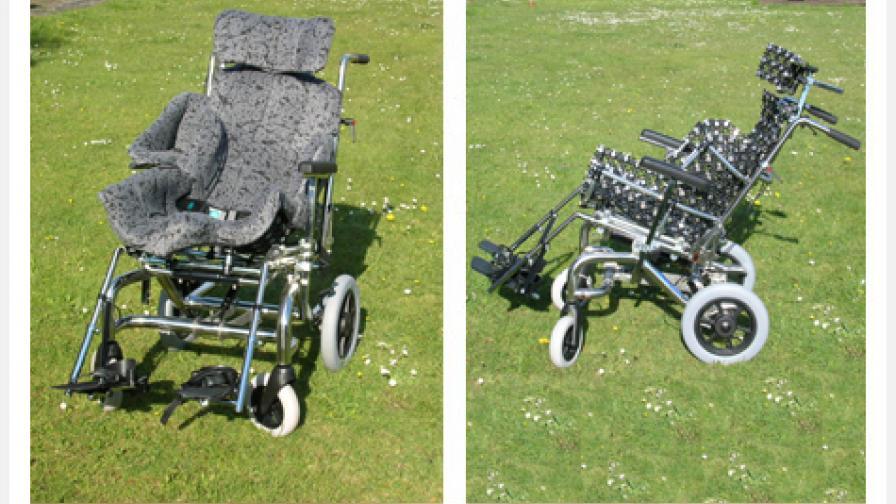
Creating the award-winning Matrix seat for disabled children
In the 1980s, Action Medical Research supported researchers at University College London while they developed a unique postural support system that progressed from prototype to clinical trials to international commercial use. The award-winning Matrix seat design can be closely fitted to a child’s body shape, averting pressure sores and easing distress. It’s unique web-like structure means it can be changed as a child grows by adjusting the links, reducing the need to regularly replace the seat.
Worldwide there have been 30,000 Matrix fittings over a period of 25 years and the latest modifications means the seat may even help correct spinal deformity in children with conditions such as muscular dystrophy.
The components of the second generation Matrix seating system are extremely flexible, meaning the seat can be shaped to an individual child.

